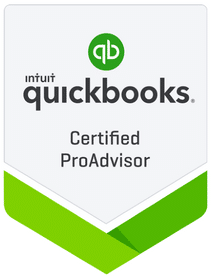- Patrick Roney
- (877) 503-8607
Follow Us :
Follow Us :
Proledge
August 5, 2011

The first baby step with QuickBooks can be intimidating. Whether you are starting a brand new business or you decided to move the books of your existing business to QuickBooks for the first time, there is this always this moment of pause when you ask yourself: “What am I embarking into?” How should you approach this? What resources do you have available?
The first question most people ask themselves is which version of QuickBooks to start with. That’s putting the cart before the horse. There are a few steps that you need to go through first.
Make sure that you have at least a foundation of accounting knowledge. It doesn’t need to be much, but if you don’t know the difference between a P&L and a balance sheet, between cash basis and accrual basis, between assets and liabilities, you won’t be able to take full advantage of QuickBooks. We’re not talking about taking a college course here. Browsing the web on this topic for an hour or two is often enough, but it’s a step that needs to be taken.
Depending on your personality and the time that you have available, you need to decide the path that you will take to learn QuickBooks. There are a number of options available:
There is no right or wrong method. The “do it yourself” approach is definitely the most cost effective, but it is also the riskier and the longest. The risk comes from setting up QuickBooks incorrectly up-front. You can always fix it later, but the longer you go on the wrong path, the longer it will take to cleanup the issues afterwards. The main challenge with the “do-it-yourself” approach is that you don’t know what you don’t know. QuickBooks has a multitude of features that make things a lot easier for you, but if you don’t know about them, you might be making your life a lot harder than it should be. If you take the “do-it-yourself” path, I recommend that you buy a book on QuickBooks and skim it cover to cover. No need to go into the details at first, but at the very least, get a feel for all the options available. Once you start using QuickBooks and you face an issue, you might then remember that the book had a workaround for this issue and you can dive into the details of that chapter.
Another decision that you need to make is what you expect your role to be with QuickBooks going forward. Do you plan on being the one doing the books for the next 12 months, or is your goal to get things started and to then pass on the reins to an employee or an outside bookkeeper? If it is just you, a desktop version of QuickBooks will be perfect. If you plan on having multiple people touching the books, you might want to consider the online version of QuickBooks (see more on this below) or a hosted version (desktop version residing on a remote server) so that multiple people can work on your books in parallel.
Now it’s time to decide which version of QuickBooks to use. Intuit’s website has a table that compares the features of the various products. In 99% of the cases, the right version to start with is QuickBooks Pro. It is very feature rich, can manage multi-million dollar businesses and is very affordable (check out prices on Amazon). The QuickBooks Online Edition sounds like a great idea on paper, because of the convenience of “paying as you go” and accessing it from anywhere, but this product is not ready for prime-time. It takes you 50% more time to perform any task on this product than it would take you on the desktop version. Starting with a Premier version, even if there is a version that matches your industry (contractors, retail, etc…) is overkill at first. Stick to QuickBooks Pro. You can always upgrade or migrate to a different version later. If you need to have multiple people access it later, you can always network QuickBooks Pro or have it hosted on a remote server. QuickBooks Pro is the lowest risk option because it is cheap and lets you jump to other options later.
Even if you plan on delegating the work in QuickBooks sooner or later, it is always a very good idea to learn QuickBooks pretty extensively.


Fill out the form below to sign up to our Blog Newsletter and we’ll drop you a line when new articles come up.
Bookkeepers.
Professional. Affordable.
ProLedge is a bookkeeping services firm.
Copyright © 2024 All rights reserved.
Hello. Can we help you?